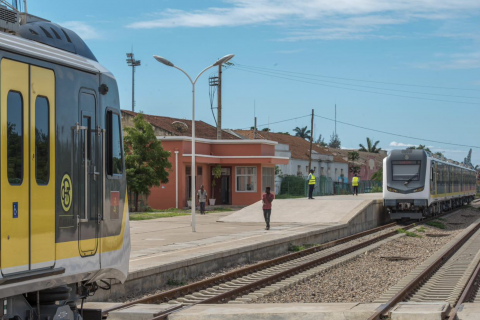In an interview with Lusa, the representative of the Agency for Investment and Foreign Trade of Portugal (AICEP) in Luanda, Miguel Fontoura, explains that it is not possible to determine an exact amount for certified debt - that is, the one recognized by the Angolan State, due to exchange effects, bearing in mind that some contracts were signed in dollars, others in kwanzas and others in euros, but it is "certainly more than 500 million euros".
Of the certified value, the amount that was actually paid is also not easy to account for as "there are payments in kind, through tax credits and treasury bonds, but it will be around 70 to 75 percent", he estimated.
Miguel Fontoura highlighted the "serious effort" of the Angolan government to "go on reducing this debt", with "considerable" progress, despite the difficulties caused by the covid-19 pandemic and the economic crisis, with Angola going through its sixth year of consecutive recession.
"Despite this complicating the treasury of Portuguese companies, these companies have never questioned being in Angola and understand that with difficulty, but seriously, things will be resolved," the AICEP official told Lusa, saying that "no it is expected that everything will be resolved overnight".
Regarding the credits that could be recovered next year, he stated that it is difficult to anticipate as it will depend on the impact of three variables: the fact that the country will experience an electoral year and the new agreement that the Angolan authorities may conclude with the Fund International Monetary (IMF), but, above all, the price of oil, which could provide more or less slack for the Angolan State to regularize its debts.
He also pointed out that the Angolan State never questioned the payment of the certified debt.
As for the uncertified, the problem is more complex, he admits. There are debts contracted by public companies and local administration bodies, debts with a State contract, but still to be certified, in a process that Miguel Fontoura acknowledges to be lengthy, and "another grayer area", that of debt that is not based on contracts, but rather in promises of contracts or expressions of interest, the total value of which cannot be accounted for.
"There was a risk", on the part of the companies, admits the AICEP delegate, considering that it must be seen in the light of the context and the time when these risks were assumed.
"It was a time of economic growth of 15 and 20 percent, the Angolan state had a great financial strength and there was a great need to recover infrastructure", he justified.
The Angolan state was in a hurry and Portuguese companies were "on this path of trust" which they will hardly ever take again.
Miguel Fontoura emphasizes that this debt, which was not based on contracts, "has to be the object of a very careful analysis", but adds that "new times" are being lived in when the Angolan State itself is more cautious and presents itself as "good payer".
"These are new times, of opening, of clarification and this is good for Portuguese companies that know what they can count on", he declared to Lusa.
Therefore, he believes that he will not go back to what happened in the past: "The executive's guidelines are very clear" in the sense that contracts are endorsed by the Court of Auditors and do not depend on "good will" or "whims", the which is "an excellent signal for companies", he concluded.







